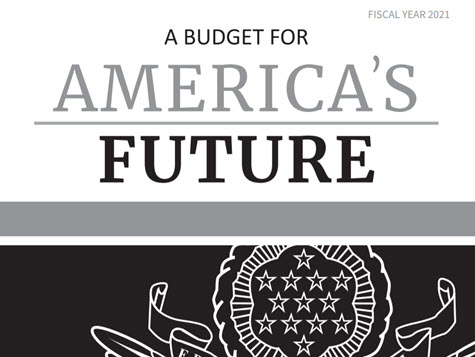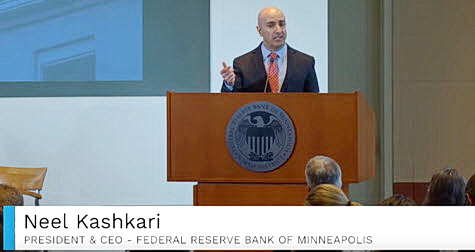
The Trump Administration on Monday released a $4.8 trillion budget for FY 2021 signaling policy priorities for a potential second term, followed by Senate and House committee hearings this week that focused on the proposal and tax-related issues – including FIRPTA repeal; correcting a drafting error affecting qualified improvement property (QIP); and expansion of the low-income housing tax credit. (Administration’s 2021 budget proposal and supporting budget materials)
- Initial budget proposals from the White House are useful only as a starting point for funding negotiations with Congress, which can produce a significantly different budget reflecting vastly different policy positions.
- The Administration’s FY 2021 budget proposal would also reverse a two-year deal negotiated with Congress last summer. While the August deal raised spending limits for both defense and domestic programs, this week’s proposed budget would cut domestic spending by six percent. (The Hill, Feb. 9)
- The proposed budget also includes the elimination of several energy tax incentives of importance to real estate, including:
* Repeal credit for residential energy efficient property placed in service after December 31, 2020.
* Repeal accelerated depreciation for renewable energy property —including solar energy, wind energy, biomass, geothermal, combined heat and power, and geothermal heat pump property; fuel cells; and micro-turbines—would range from five to 20 years. Qualifying properties would still be eligible for the bonus depreciation allowance included in the 2017 tax overhaul.
* Repeal energy investment credit for property where construction begins after December 31, 2020.
-
The White House budget, which would also devote billions to construct a border wall with Mexico and lead to a $966 billion deficit, was immediately rejected by House Speaker Nancy Pelosi (D-CA) and criticized by House Budget Committee Chairman John Yarmuth (D-KY). (Associated Press, Feb. 9)
- Republican Senate Budget Chairman Mike Enzi (WY) also weighed in with a Feb. 10 statement. “Presidents’ budgets are a reflection of Administration priorities, but in the end, they are just a list of suggestions, as the power of the purse rests with Congress. Bipartisan consensus will be necessary to bring our debt and deficits under control. I hope to work with my colleagues on both sides of the aisle to put our country on a more sustainable fiscal course.”
Congressional Hearings
Administration officials appeared before congressional committees this week to testify about the budget proposal and face Q&A on other policy issues.
-
Secretary of the Treasury Steven Mnuchin testified on Feb. 12 before the Senate Finance Committee, urging Congress to make the temporary provisions of the 2017 tax law permanent.
- During Q&A, Mnuchin also expressed interest in working with Sen. Maria Cantwell (D-WA) and Senate Banking, Housing and Urban Affairs Ranking Member Sherrod Brown (D-OH) on expanding the Low Income Housing Tax Credit (LIHTC).
- The Treasury Secretary reiterated his support for Sen. Pat Toomey’s (R-PA) bill to correct a drafting error in the 2017 tax law that unintentionally requires retailers to depreciate certain property improvements over 39 years – rather than the intended option of immediate expensing. Correcting this qualified improvement provision (QIP) is, Mnuchin testified, “our number one request to get a congressional fix for.” (Senate Finance Committee hearings, with video)
- In the House, the Ways and Means Committee on Feb. 11 held a hearing on “The Disappearing Corporate Income Tax, which was preceeded by a Joint Committee on Taxation report on corporate income tax policy.
- During Q&A, Committeee Member Kenny Marchant (R-TX), sponsor of the Invest in America Act (H.R. 2210, engaged witnesses on the importance of repealing the Foreign Investment in Real Property Tax Act of 1980 (FIRPTA).
- Jason Furman – an economics professor at the Harvard Kennedy School of Government and former chair of the White House Council of Economic Advisers – responded to Rep. Marchant, “I think it is certainly worth taking a serious look at repealing it … In the Obama Administration we did take a look at this and it did seem like there was some infrastructure investment that wasn’t coming in to the country as a result of it.”
- Douglas Holtz-Eakin – a former director of the Congressional Budget Office and the sole Republican witness – told the committee, “This is a law whose time has passed. It should be repealed.” ( Watch video of Rep. Marchant’s FIRPTA exchange)
More congressional hearings on the budget and appropriations are scheduled after lawmakers return from next week’s congressional recess.
# # #







